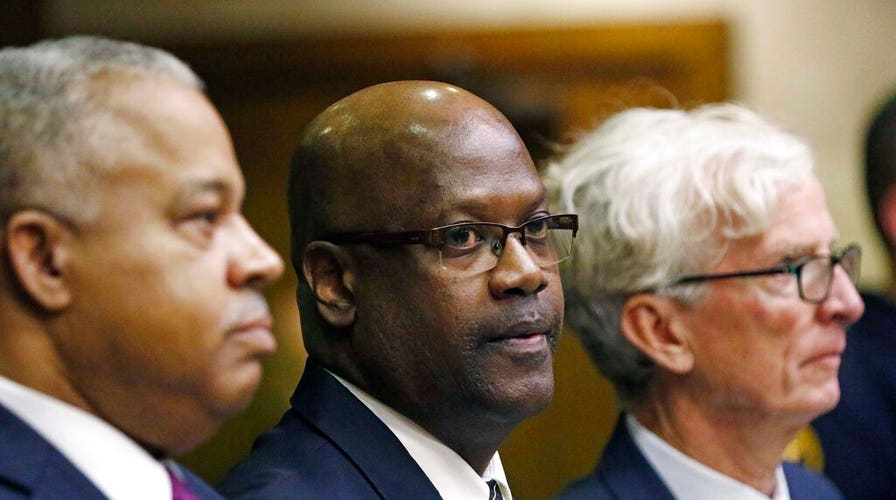Fox News Flash top headlines for Sept. 4
Fox News Flash top headlines are here. Check out what's clicking on Foxnews.com.
JACKSON, Miss. -- A Mississippi man freed last year after 22 years in prison will not be tried a seventh time in a quadruple murder case, a judge ruled Friday after prosecutors told him they no longer had any credible witnesses.
Curtis Flowers was convicted multiple times in a bloody slaying and robbery at a small-town furniture store in 1996. The U.S. Supreme Court threw out the most recent conviction in June 2019, citing racial bias in jury selection.
MISSISSIPPI MAN TRIED 6 TIMES IN KILLINGS GRANTED BOND AFTER 22 YEARS
"Today, I am finally free from the injustice that left me locked in a box for nearly twenty three years," Flowers said in a statement released by his lawyer. "I've been asked if I ever thought this day would come. I have been blessed with a family that never gave up on me and with them by my side, I knew it would."
Montgomery County Circuit Judge Joseph Loper signed the order Friday after the state attorney general's office, which had taken over the case, admitted the evidence was too weak to proceed with another trial.
SUPREME COURT THROWS OUT MURDER CONVICTION OF INMATE
"As the evidence stands today, there is no key prosecution witness ... who is alive and available and has not had multiple, conflicting statements in the record," Assistant Attorney General Mary Helen Wall wrote in a filing presented to Loper on Friday.

Defendant Curtis Flowers, center, stands with his attorneys, Henderson Hill, left, and Rob McDuff, at a bail hearing in Winona, Miss., Monday, Dec. 16, 2019. (AP Photo/Rogelio V. Solis)
Four people were shot to death on July 16, 1996, in the Tardy Furniture store in Winona. They were owner Bertha Tardy, 59, and three employees: 45-year-old Carmen Rigby, 42-year-old Robert Golden and 16-year-old Derrick "Bobo" Stewart.
Flowers was convicted four times in the slayings: twice for individual slayings and twice for all four killings. Two other trials involving all four deaths ended in mistrials.
Each of Flowers' convictions was overturned. In June 2019, the U.S. Supreme Court tossed out the conviction and death sentence from Flowers' sixth trial, which took place in 2010. Justices said prosecutors showed an unconstitutional pattern of excluding African American jurors in the trials of Flowers, who is Black.
After that ruling, Flowers was moved off death row at the Mississippi State Penitentiary at Parchman and taken to a regional jail in the central Mississippi town of Louisville. He remained in custody because the original murder indictment was still active.

This Aug. 3, 2017, file photo provided by Mississippi Department of Corrections shows Curtis Flowers. (Mississippi Department of Corrections File via AP, File)
At the request of Flowers' attorneys, a judge set bail at $250,000. McDuff said a person who wanted to remain anonymous posted $25,000, the 10% needed to secure Flowers' release. On Dec. 16, he was released.
Winona sits near the crossroads of Interstate 55, the major north-south artery in Mississippi, and U.S. Highway 82, which runs east to west. It about a half-hour's drive from the flatlands of the Mississippi Delta. Among its 4,300 residents, about 48% are Black and 44% are White. Census Bureau figures show that about 30% live in poverty.









































